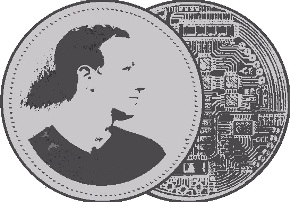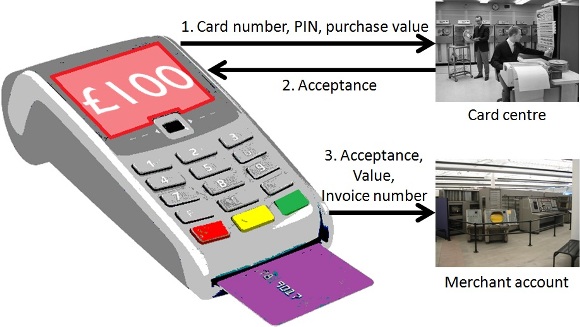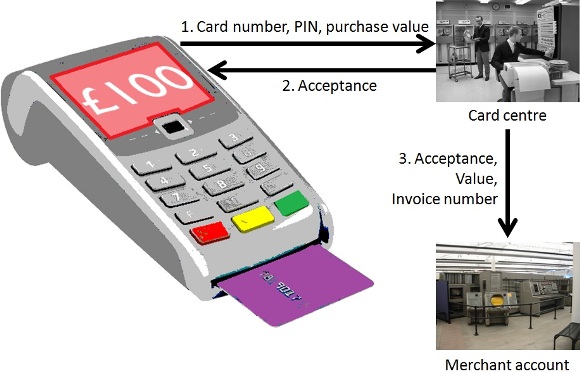 Mark Zuckerberg, surely one of the most immediately recognisable faces on the whole of the internet, has announced that his company, Facebook, one of the most instantly recognisable wastes of time on the whole of the internet, is going to send forth a new digital currency, and its name shall be called
Libra.
Mark Zuckerberg, surely one of the most immediately recognisable faces on the whole of the internet, has announced that his company, Facebook, one of the most instantly recognisable wastes of time on the whole of the internet, is going to send forth a new digital currency, and its name shall be called
Libra.
 Digital currencies have been around for some years, so Mr Zuckerberg has taken the opportunity to learn by its predecessors’ mistakes. One of the advantages that Libra will have over the established brands will be that it will have a stable exchange rate, unlike Bitcoin, for example. Because there are not a lot of Bitcoins in circulation — only 21 million will ever be ‘mined’ — the exchange rate of Bitcoin has swung wildly, which makes it, incidentally, a good choice for currency speculators. The value of the Libra will be pegged to the value of a ‘basket of currencies,’ which may well be a reference to the IMF Special Drawing Right (XDR). If it is, then Libra will join the handful of currencies pegged to the XDR, which include the Seychelles rupee and the Syrian pound. The XDR has proved fairly stable, so the Libra, linked to the XDR, would likely be fairly stable too.
Digital currencies have been around for some years, so Mr Zuckerberg has taken the opportunity to learn by its predecessors’ mistakes. One of the advantages that Libra will have over the established brands will be that it will have a stable exchange rate, unlike Bitcoin, for example. Because there are not a lot of Bitcoins in circulation — only 21 million will ever be ‘mined’ — the exchange rate of Bitcoin has swung wildly, which makes it, incidentally, a good choice for currency speculators. The value of the Libra will be pegged to the value of a ‘basket of currencies,’ which may well be a reference to the IMF Special Drawing Right (XDR). If it is, then Libra will join the handful of currencies pegged to the XDR, which include the Seychelles rupee and the Syrian pound. The XDR has proved fairly stable, so the Libra, linked to the XDR, would likely be fairly stable too.
Compare the foreign exchange market:

|

|
|
| The value of a Bitcoin has wobbled between £205 on 1 January 2015 and £14,380 on 18 December 2017. It is currently (20 June 2019) £7,496 | Compared with Bitcoin, the XDR has proved fairly stable. (Note: the vertical scales of the two graphs are different.) In the last five years it reached a low point of 88p on 7 July 2014 and a high point of £1·13 on 17 October 2016. Currently it’s £1·10 |
If it can fulfil one of its design objectives and “make it as easy to send money as it is to send a text message,” Libra will likely be heavily used and a great success.
 If it achieves a stable exchange rate, the chance of finding that the money in your digital wallet or handbag has suddenly disappeared will be negligible. On the other hand, of course, your chances of finding that the few pence that you used to have in your digital wallet is suddenly worth countless millions of pounds will also be negligible.
(Left: A 10,000 SDR banknote, worth about £11,000 in June 2020)
If it achieves a stable exchange rate, the chance of finding that the money in your digital wallet or handbag has suddenly disappeared will be negligible. On the other hand, of course, your chances of finding that the few pence that you used to have in your digital wallet is suddenly worth countless millions of pounds will also be negligible.
(Left: A 10,000 SDR banknote, worth about £11,000 in June 2020)
Thus, easy to use and stable in value, Libra may well have found a way around the best known disadvantages of digital currencies.
What of the best known advantage, the anonymity of digital currencies?
The desire for anonymity when paying money is not, of itself, a sinister thing. We all use cash, at least occasionally, and when we spend cash, we usually do so without leaving any record of who we are, when we made the payment, or what we bought. Going through the takings of a newsboy, an ice cream salesman or a bus conductor, we know only what amount was taken and (where there are tickets or receipts) how many transactions took place and the amount spent in each one. It is the desire to remove anonymity that is sinister, not the fact of it, and that may well be the motive behind the peculiar move to abolish coins and notes outright.
Digital currencies can be anonymous, like cash. That means that no information is passed from your plastic card, the merchant’s card reader or your card issuer that link your payments to you. Of course, there might be other means of linking you to your payments and purchases: for instance, if the merchant has a closed circuit television camera filming you as you use your plastic card. In principle, though, digital currency should pay the amounts that you want to pay but leave no trace of who paid them or what they paid for. Not that anonymous payments guarantee success to a digital currency. The digital currency E-Gold, whose design offered the card-holder complete anonymity, failed. Its use by criminals led, on 20 January 2015, to the suspension of E-gold transactions and, later, to the closure of the company.
So anonymity is really nothing that hasn't been going on for centuries and nothing to be scared of. The point that I haven’t heard anyone make, though, is that a conventional credit card or debit card could be used anonymously, but isn’t. If the pattern of messages between the card reading terminal, the card company and the payee’s accounts department were designed to make the payment anonymously, there would be no reason to open a separate account with a special anonymous payment card issued by a company every bit as dodgy as a two-year-old prawn sandwich.
Here’s one way of setting up the card reader and its contacts in the card company and the payee’s company so that you can pay a bill anonymously with an ordinary credit or debit card. At each stage, information is transferred only concerning the payment card and the value of the purchase. No information concerning the identity of the purchaser is given to the merchant.

Here’s another way of achieving the same thing. This way takes the load off the card reader and puts the onus of communicating with the merchant onto the data centre, which is usually a lot better equipped to provide it.

Since it isn't particularly difficult to design a card reader that accepts ordinary bank cards but processes them anonymously, might we hope that, at some time in the not too distant future, the High Street banks might offer anonymous payments with the ordinary credit and debit cards that everybody already has? I wish Libra every success in its enterprise but many of us need no more than a small enhancement to the plastic card services that we already have.
Incidentally the European Union is trying to kill off anonymous digital currencies because they think anonymous payments encourage terrorism. While that’s indubitably true, before they put an end to one of the most useful developments in information technology since the first archer tied a message to an arrow and shot it at a tree overlooking the Merry Men in the Forest, the European Union should first try insisting that companies who make and sell hand grenades, land-mines, machine guns and nuclear missiles should record the details of the people they sell them to and hand the record to the local Police at the end of every week’s business.
Notes. The design of the coin at the top of this page is based on two separate images, each of which are speculation in the Press rather than data from Facebook or Libra, so don’t waste your time trying to forge one. The One Libra banknote is of my own design.
Exchange rates and graphs are from XE Corporation.
No comments:
Post a Comment